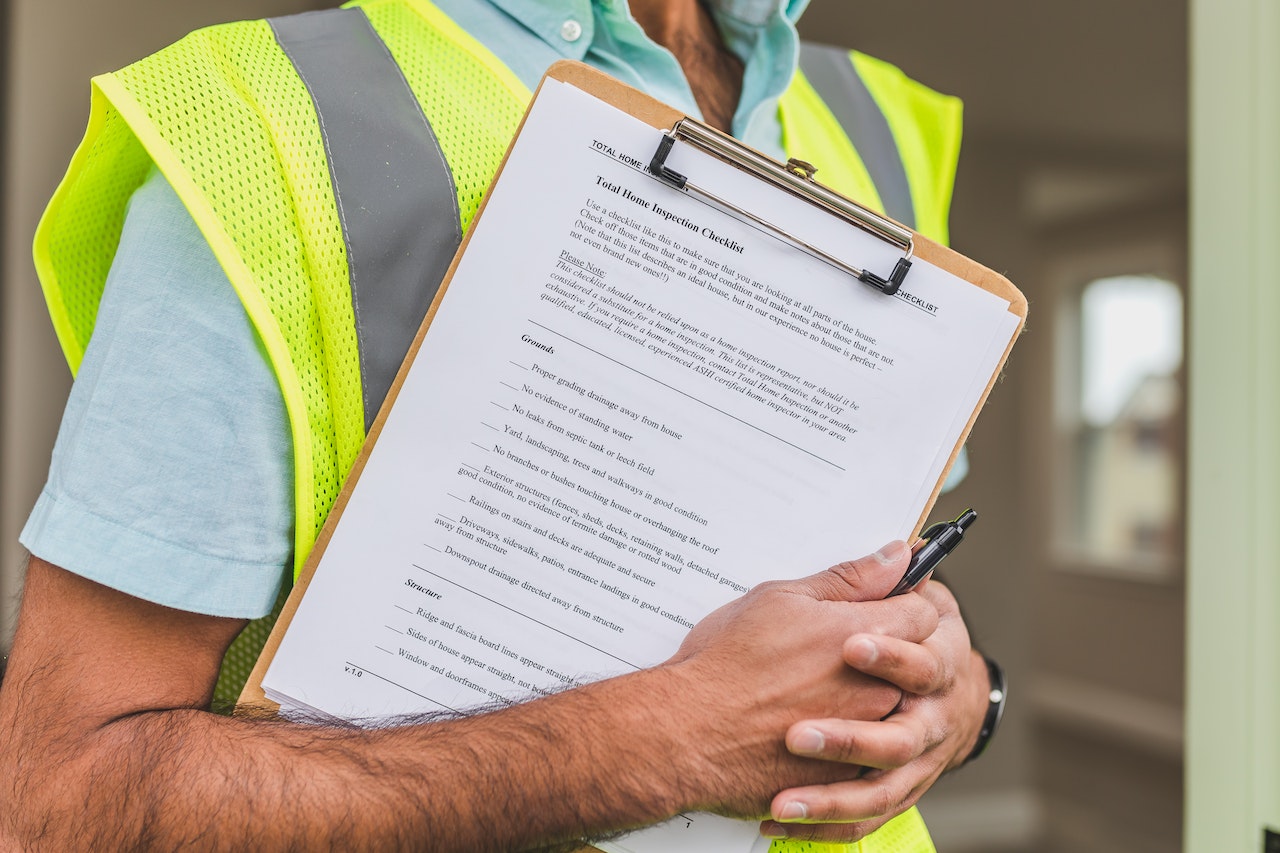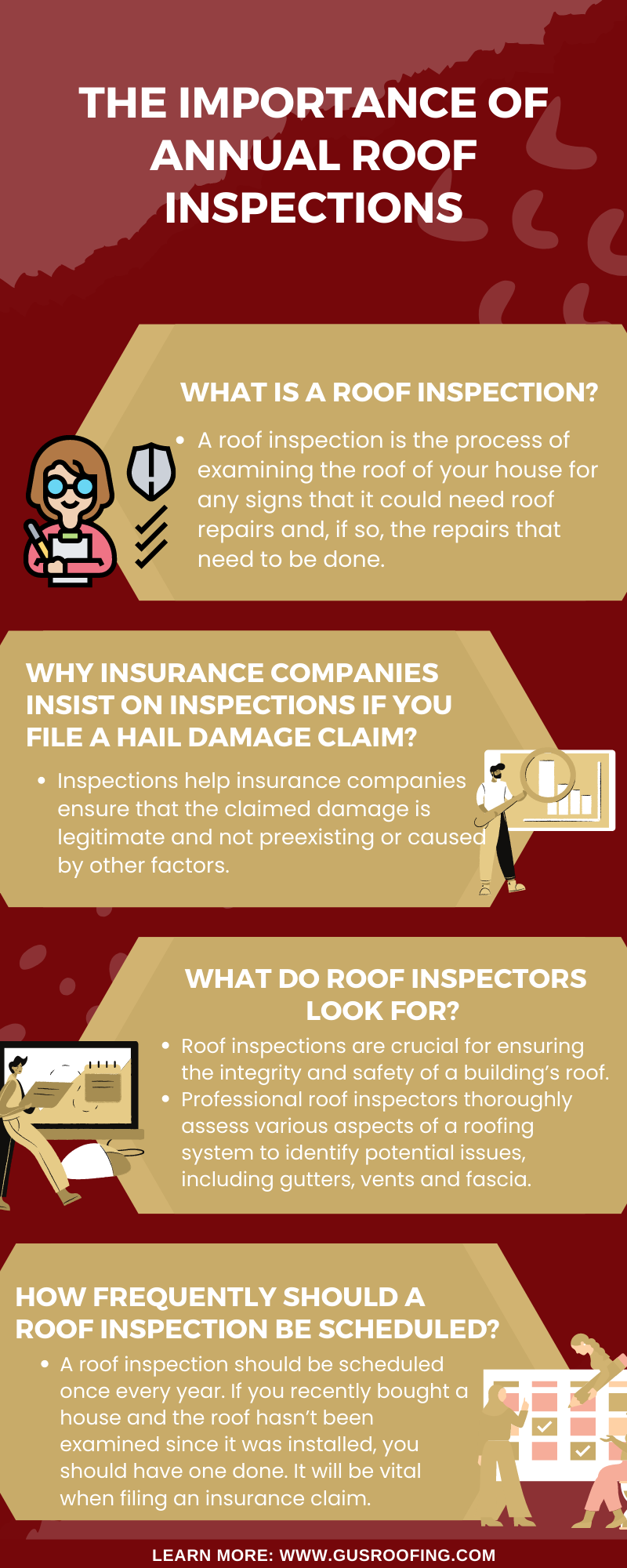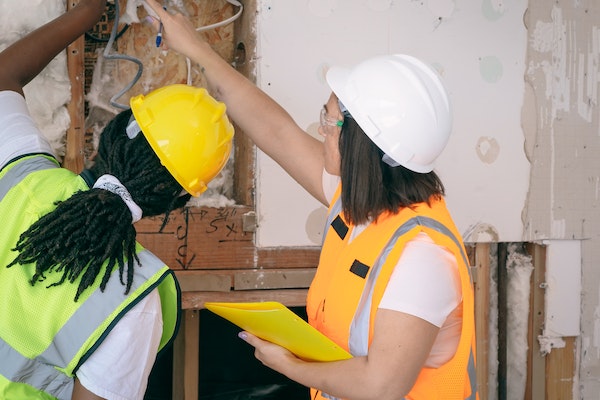The Importance Of Annual Roof Inspections
It’s crucial to have your roof evaluated by a professional at least once a year to make sure it will last as long as possible. Checking the roof flashing, looking for missing or broken shingles, checking for leaks, and taking care of any other potential maintenance issues are all included in an annual roof inspection. Here are a few things to keep in mind as you plan your yearly roof check.
– If any concerns, such as leaks, broken shingles, or issues with the roof flashing, are found during your roof inspection. Make sure to attempt to have these fixed as soon as you can. You can save money in the long run by taking care of a minor repair as soon as possible.
– Make sure to schedule in advance. This will assure that you have a scheduled appointment and prevent you from having trouble scheduling an inspection just before the winter months.
What Is A Roof Inspection?
A roof inspection is the process of examining your home’s roof for any signs that it could need roof repairs and, if so, what needs to be done. Regular roof inspections can lower risk and help identify needed repairs early on before they become more serious.
In addition to other obligations that come with house ownership, maintaining your roof should always be a top concern. Over time, your roof may sustain damage, shingles may fall away, or you may have bothersome leaks.
An examination of your roof will help you identify problem areas before they worsen and guarantee that your roof is in excellent shape. Continue reading to find out more about roof inspections, their significance, and how they operate so that you may be ready for each season and feel secure in your home.
Why Insurance Companies Insist On Inspections If You File A Hail Damage Claim?
Insurance companies insist on inspections when filing a hail damage claim for several reasons. First and foremost, inspections enable the insurance company to accurately assess the extent of the damage and determine the appropriate coverage and compensation. Hail damage can vary significantly, ranging from minor dents to severe structural impairment, and inspections help prevent fraudulent claims.
Inspections also help insurance companies ensure that the claimed damage is legitimate and not preexisting or caused by other factors. By examining the property firsthand, inspectors can verify the authenticity of the claim and rule out any potential fraudulent activity. This is why having your own inspection done by a trusting roofing company will help you fight the insurance company if it comes to that.
Additionally, inspections allow insurance companies to estimate the cost of repairs accurately. This information is crucial for determining the appropriate settlement amount and ensuring that the claimant receives the necessary funds to restore their property adequately.
Ultimately, inspections serve as a vital step in the claims process, enabling insurance companies to protect their interests, validate claims, and provide fair compensation to policyholders.
What Do Roof Inspectors Look For?
Roof inspections are crucial for ensuring the integrity and safety of a building’s roof. Professional roof inspectors thoroughly assess various aspects of a roof to identify potential issues and recommend appropriate repairs or maintenance. Here are some key elements that roof inspectors typically look for during inspections:
Overall roof condition: Inspectors evaluate the general condition of the roof, checking for signs of wear, aging, or damage. They look for loose, cracked, or missing shingles, as well as signs of curling or buckling.
Roof inspectors search for any signs of leaks or water damage. They examine the roof’s interior, checking for water stains, mold growth, or rot in the attic or ceiling. They also inspect the roof’s exterior for areas where water may be pooling or infiltrating.
How Frequently Should A Roof Inspection Be Scheduled?
A roof inspection should be scheduled at least once every year. If you recently bought a house and the roof hasn’t been examined since it was installed, you should arrange for one.
The location, climate, and state of your roof will all influence the optimum time of year to get a roof check. However, it’s preferable to schedule roof repairs for the fall or spring when the weather is more conducive to working outside. Checking your roof after severe weather, such as hurricanes or snowstorms, is also a smart idea. Examine your roof before the summer or winter if you’re concerned about damage.
Summertime thunderstorms and extreme heat can damage your roof. Snowstorms and ice can also be a problem when it becomes cold. A yearly roof assessment in the spring or fall is advised by experts to look for any damage from the previous season.
Contact us to get your annual roof inspection scheduled today: https://www.gusroofing.com/.





